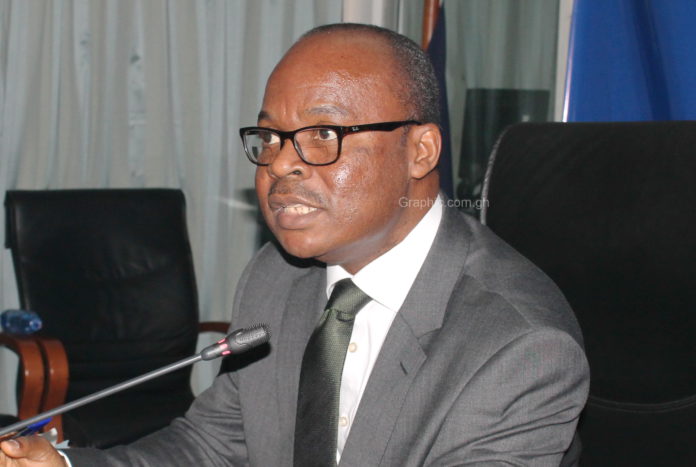Governor of the Bank of Ghana, Dr Ernest Addison, has warned that the economic recovery expected following the pandemic could be badly affected because of the second wave of Covid-19.
The Governor’s concern was captured in the Monetary Policy Committee statement issued after they met last week to review developments in the economy.
The meeting ended with the committee keeping its key lending rate or the rate at which it lends to commercial banks at 14.5 percent. The rate has been kept at 14.5 percent since November 2019.
The Governor’s concerns
The Governor, who is the Chairman of the Monetary Policy Committee, in that statement noted that the economy has been on a pick-up similar to what was recorded during the pre-lockdown levels, despite sharp contraction in the second quarter of last year.
“Business confidence improved significantly, reaching pre-lockdown levels, for the first time, as businesses met short-term company targets and expressed positive sentiments about growth prospects,” the Governor added.
The Governor’s concerns have also been influenced by how the economy fared last year. This, he argued may affect planned correction, adding that: “The prospects of a sharp fiscal correction in 2021 now looks unlikely amidst the second wave of the pandemic.”
According to the Governor, this is due to the fact that there might be the need for additional spending to provide testing, vaccines, etc.
Revenue measures and expenditure rationalisation will have to be pursued, he added.
This, the Governor believes, should be “within the context of the medium-term fiscal framework to allow for the generation of primary surpluses.”
Other areas likely to be affected
In the area of Foreign Direct Investments, the Monetary Policy Committee was worried that rising debt concerns could also pose a significant risk and potentially worsen investor appetite.
The Governor added that: “Rising debt vulnerabilities, on the other hand, pose significant risks and could potentially worsen investor risk appetite.”
Dr Addison noted that these conditions will require managing fiscal risks in the outlook for the Ghanaian economy.
Prospect and outlook
Despite expressing these concerns, the Governor maintained that the Bank of Ghana still has some measures in place to help minimise the expected shocks.
He, for instance, cited the strong reserve position of the Bank that could help in managing the shocks in the coming months, adding that: “Gross International Reserves at the end of December 2020 was US$8,624.4 million, providing cover for 4.1 months of imports of goods and services.”
“The reserve level compares with the end-December 2019 position of US$8,418.1 million, equivalent to 4.0 months of import cover.”
Banking Sector Performance and Covid-19
The Monetary Policy Committee statement revealed that despite the negative impact of Covid-19 on some sectors of the economy, the Banking Sector was able to absorb the expected shocks.
According to the Governor of Bank of Ghana, the banking sector showed resilience to the first wave of the pandemic supported by strong policy support and regulatory reliefs, adding that: “Banking sector performance remained strong through end 2020, with robust growth in total assets, deposits and investments.”
He noted that: “Overall, the impact of Covid-19 on the industry’s performance was moderate as banks remained liquid, profitable and well-capitalised,” while total assets increased by 15.8 percent, of which Investments in Government bonds rose by 33.4 percent.
The development, the Governor noted, has resulted in profit before tax increased by 27.2 percent to GH¢6.1 billion compared to 34.7 percent a year ago.

